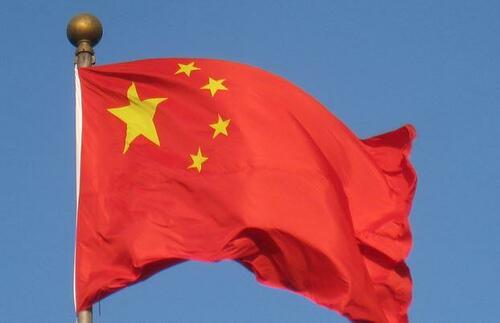In Dealing With China, Trump May Have A Trick Up His Sleeve
Authored by Bonner Russel Cohen via RealClearEnergy,
China is the only country in the world that can seriously challenge America’s longstanding status as the globe’s top dog. And a rejuvenated United States is the only thing standing in the way of an ambitious China ascending to the peak of the heap. The reemergence of a bipolar world in the 21st century – replicating the old U.S.-U.S.S.R. rivalry of the Cold War era – is the no-longer-to-be-ignored reality of our time.
However, unlike the late Soviet Union – sometimes referred to as “Haiti with missiles” – China is an economic powerhouse, one that puts is technological prowess in the service of its geostrategic aspirations. ”China has roughly nine times as many engineers as the U.S. and perhaps as many as 15 times as many science and technology graduates,” George Gilder recently noted in the Wall Street Journal. This gives China a decisive edge in a world where rapid advances in technology have far-reaching economic and military implications.
There are, however, things that Trump and his team can do, and in some cases are already doing, that can turn the tables on Beijing. With the departure of the geopolitically inept Biden administration, Washington can now harness its considerable geological assets to the disadvantage of its rival in the Far East.
Beijing was quick to realize the importance of gaining control of both the mining and processing of rare earths and other critical minerals, which it had largely done by the time the U.S. and other industrialized countries embarked on their climate-driven green energy transition. Beijing was not so foolish; to meet its own energy needs, it built hundreds of coal-fired power plants. Abandoning fossil fuels, which the United States has in abundance, and embracing green energy, the supply chain for which is largely controlled by China, could benefit only one country. And for a while, China’s bet looked to be paying off.
But China’s dominance of such sectors as electric vehicles, batteries that power EVs and serve to backup intermittent wind and solar energy, and the raw materials in wind turbines and solar panels makes the Middle Kingdom vulnerable to Trump’s renewed embrace of “American energy dominance.” One of Trump’s Jan. 20 executive orders titled “Unleashing American Energy” includes directives revoking the EV mandate, freezing unspent funds for green energy, expediting approval of liquid natural gas (LNG) export facilities, and streamlining the permitting process for oil and gas leasing, exploration, development, and production. It also speeds up the approval process for new pipelines and other critical fossil-fuel infrastructure.
Another, less-reported section of Trump’s order focuses on the mining of critical minerals. It instructs federal agencies to identify all regulations, policies, and orders “that impose undue burdens on domestic mining and processing of non-fuel minerals and undertake steps to revise or rescind such actions.”
The geostrategic case for promoting the mining and processing of critical minerals in the U.S. is compelling. “China now produces 80-90% of the world’s rare-earth minerals, according to the U.S. Geological Survey. Yet China has only about 37% of the world’s estimated reserves,” notes Greg Walcher, president of the Natural Resources Group LLC. “Relying on China for critical minerals is obviously not smart, not safe, nor necessary.”
Known to the public for their unpronounceable names, rare earths – which are actually quite abundant – have a variety of commercial and military applications. They include smartphones, MRI equipment, satellites, jet engines, night-vision goggles, sonar on submarines and other naval vessels, and real-time imagery and targeting for surveillance and reconnaissance flights by unmanned aerial systems – just to name a few.
Taking rare earths and other valuable minerals seriously means upgrading the nation’s hollowed-out domestic supply chain for these natural resources. This is the purpose behind Trump’s order to eliminate “undue burdens on domestic mining and processing” of these strategically important minerals. That, of course, will be easier said than done, because Trump’s initiative will be challenged by lawsuits launched by activists determined to cripple America’s industrial base.
Trump’s desire to acquire Greenland from Denmark must be seen in this light. The icy island where the North Atlantic meets the Arctic abounds in mostly untapped mineral resources. In bringing the giant island under American jurisdiction, in whatever form, Trump can deny China (and Russia) access to Greenland’s riches while solidifying the U.S. presence in the Arctic.
Another Trump executive order temporarily halts offshore wind leases in federal waters and pauses approvals, permits, and loans for offshore and onshore wind projects. Aside from signaling to investors that putting their money into capital-intensive wind projects may not be a good idea, the order undercuts Beijing’s investment in raw materials used in wind energy.
“Wind farms require 10 times the amount of critical minerals as natural gas power plants and 1.6 times as much as nuclear power plants,” writes the Heritage Foundation’s Austin Gae.
China is the world’s leading supplier of raw materials that go into wind turbines, including in the U.S. Trump is deliberately shrinking the U.S. market for wind turbines and for the predominately Chinese-supplied raw materials that go into them. The goal is to play to America’s strengths, which lie in fossil fuels and a rejuvenated nuclear-power industry, while lowering our dependence on China by turning away from wind and solar power.
This is a winning strategy.
Bonner Russell Cohen, Ph. D., is a senior policy analyst with the Committee for a Constructive Tomorrow (CFACT).
Tyler Durden
Tue, 02/18/2025 – 17:40



















